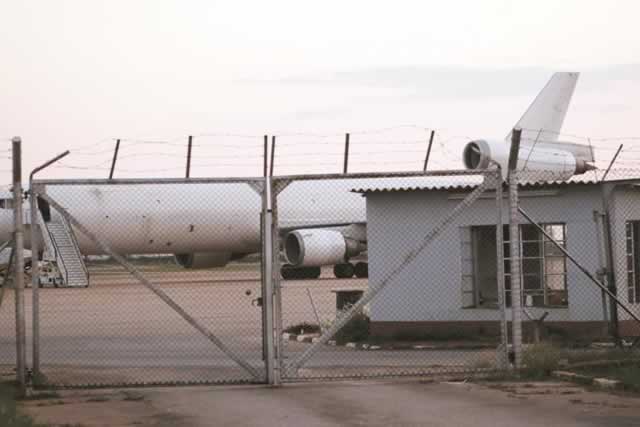Let’s tell our own story


Zimbabwe last year witnessed a milestone in the implementation of the Digital Migration Project, with the hoisting of a satellite uplink dish at the Zimbabwe Broadcasting Corporation’s Pockets Hill studios
Dr Christopher Mushohwe Special Correspondent
We want Zimbabweans to tell their own story and in their own language. That way we are branding ourselves as a nation, as a people, and as a country.
IT is a very happy occasion for me to be part of this important countrywide consultative process through which my Ministry seeks to canvass views from all stakeholders who have something to with content production.
There is urgency to this exercise because time is not on our side and besides, we don’t have much of a content industry to talk about because in its current form, it is a fragmented industry with each stakeholder doing their own thing.
There is no unity of purpose and invariably we are working at cross-purposes and undermining each other’s interests in the process. This move we have taken of engagement with yourselves, is our attempt at bringing sanity and orderliness to the sector. The compelling reasons are not difficult to comprehend.
Firstly, we decided to sensitise the independent content producers, with film producers as the ultimate target, about producing local content for television with immediate effect in anticipation of the launch of digital broadcasting television by the end of the first quarter of this year.
Secondly, we need to put our heads together on how to grow this nascent content industry which has a great potential to create employment for many Zimbabweans, especially our young generation. From the reports which I have been given about the level of interest shown as well as the level of participation at the recent Harare and Bulawayo meetings, our youths commanded the larger figures as is evident also at this meeting.
Another reason is that we need to produce local content not only to satisfy the needs of the local market, but also to target the external market which is not the exclusive preserve of Hollywood, Nollywood and Bollywood, to name just these three.
Our meeting here today is not therefore, fortuitous. It is very purposeful and it should not be difficult for you and anyone else to see why. I am sure, most of you have been following closely the new developments that are happening in your industry.
You should be aware by now that the country is in the process of migrating from analogue television to digital terrestrial television. It is this process which has prompted meetings of this nature which started last month with Harare and Bulawayo. Today we are here in Masvingo and Mutare will be next on our itinerary.
I was not able to attend the first two meetings which were held in Harare and Bulawayo because of other engagements that were unavoidable.
However, on both occasions I was well represented by my deputy, Honourable Thokozile Mathuthu, who is not with us today on an assignment outside the country. The digitisation program which started in earnest in April last year is work in progress and we are quite happy with the achievements we have made to date, albeit under very difficult circumstances including resource constraints and the imposition of sanctions which have affected smooth financial transactions with western suppliers of the equipment we needed. Those of you who may have read the local papers today may have come across the story about Barclays bank which was penalised by the United States Department of the Treasury`s Office of Foreign Assets Control (ofac) for processing transactions for corporate customers that are on the ‘List Of Specially Designated Nationals and Blocked Persons’. That is the Zimbabwe Democracy and Economic Recovery Act popularly known as zidera which bears testimony to the illegal sanctions which have been imposed against Zimbabwe by the United States of America.
As per today’s programme the status of the project to date and what it means to migrate from analogue television to digital television has already been covered and I need not say much about it. We are very happy with the good work that the contractor has done so far and, as you may have heard, if the momentum is maintained, we may be able to do our dry run by April this year.
But for that to happen, there is need on the part of Government to keep up to date on payments with the contractor and other service providers including, and this is very important, deposit for the set-top boxes. This is only the technical side of the project involving our engineers and the contractor. I cannot for instance, come this April or May, announce to the nation that the country has now moved from analogue to digital broadcasting television on the basis of the completion of the technical phase of the project. That is only one side of the coin, on the other side of the coin is the raison d’etre for our meeting today. This has to do with the availability of broadcasting content in digital format.
There will be nothing to launch if we don’t have content to show on our television screens. I don’t want to commission blank television screens. I want to launch the new digital terrestrial television with a bang because that is very critical to attracting the attention of the local television viewer to the local channels that will become available as a result of digital technology.
Broadcasting today is not about acquiring the cutting edge in broadcast technology. Yes you need that technology today, but that is not what will attract viewers and audiences to glue to their television sets and radio receivers. It is the content that is carried by them. Without content, and it must be appropriate content, exciting content, quality content, affordable content, and local content there is no serious broadcasting to talk about.
The digital terrestrial television platform competes against other content platforms such as the Internet and other social media platforms. We therefore have to get our content production strategies right from the start. The solution to our content nightmare is not solved by purchasing canned products from outside our borders, especially from the Western countries that have well established film industries. That would be a recipe for disaster for our country both culturally and economically.
That route forces our people to be exposed to foreign cultures at the expense of our own culture and the importation of foreign products subjects our own local products to unnecessary competition which stifles our own creativity and eventually kills the industry. When the local industry is killed, it means loss of jobs, loss of income and loss of own national identity as a people. We can produce local content for our country, for the SADC region and beyond. It is there, we have it in our communities and what is required is to harness it and package it attractively in a manner that captures the imagination of the local consumer as well as competitiveness on the foreign market.
My message to all our people is that we don’t have to look very far in search of local content. We have it in our communities and what is required is to harness it. That is why in the presentations on the status of the digitalisation project, mention was made of regional content hubs that we are going to establish. The policy direction is that content comes from all our communities in the national interest.
As Zimbabweans there is a lot to learn from each other regardless of the region we come from. The different cultures and traditional and traditional practices from every part of the country constitutes the Zimbabwean culture and tradition. That is why it is very important that our content producers draw content from our communities. Ordinarily, these communities have their languages. Let us therefore not shy away from our own local languages and they are recognised in our Constitution as official languages of the country such as: Chewa, Chibarwe, Kalanga, Khoisan, Nambya, Ndau, Ndebele, Shangani, Shona, sign language, Sotho, Tonga, Tswana, Venda and Xhosa. Let us use them in the production of local content and broadcast in these languages and use English sub-titles where it is unavoidable.
We want Zimbabweans to tell their own story and in their own language. That way we are branding ourselves as a nation, as a people, and as a country. This is an opportunity to brand ourselves and to brand the different communities and in the process brand our products. You may have heard that very soon we shall be launching a Sadc television Channel whereby member states will take turns to host the channel. It is important that we have local content with a Zimbabwean face or identity so as to set ourselves apart from other nations through a recognised Zimbabwean brand. I believe that we can do it and let us do it.
I hope that during this meeting you will be able to indicate to us the areas of support you feel Government should give you to enable you to get started. As a ministry we are making every effort acquire equipment that which our content producers can access or borrow while we are establishing the regional content hubs I referred to earlier.
With these remarks, I challenge content producers to rise to the occasion and start focusing on local content production. I wish you productive deliberations and to declare your meeting officially open.
May God bless you all.
I thank you.
These were remarks by the Honourable Minister of Information, Media and Broadcasting Services, Hon Christopher Mushohwe, during a Consultative meeting with Independent Film Content producers, January 11 2016, in Masvingo.









Comments